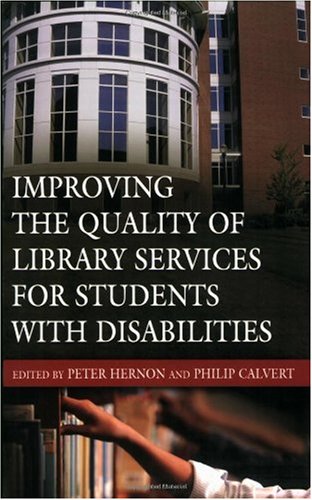Product desciption
Improving The Quality Of Library Services For Students With Disabilities Peter Hernon by Peter Hernon, Philip Calvert 9781591583004, 1591583004 instant download after payment.
The development and promotion of appropriate services for students with disabilities has been an integral part of the academic library since the 1990s. There remains, however, a dearth of literature—in marketing, library and information science, and other disciplines—that applies quality assessment instruments to existing programs. With this in mind, Hernon and Calvert present two versions of a data collection instrument, designed to compare the expectations of special students with their perceptions of how well a given service met their needs. Descriptions of successful initiatives at a variety of academic libraries are also included.Adaptive technologies. Anti-discrimination laws. Equity and compliance issues. In-house policies (and politics). All of these support, in one form or another, the development and promotion of appropriate services for students with physical, learning, or, increasingly, psychological disabilities. But what of service quality? To date, there is a dearth of literature—in marketing, library and information science, and other disciplines—that applies quality assessment instruments to programs for special student populations. Not until now has anyone compared the expectations of such students with their perceptions of how well a given service meets their needs. Peter Hernon, Philip Calvert, and their colleagues—Kathleen Rogers, Todd K. Herriott, and Ava Gibson—discuss the circumstances affecting services for the disabled, and provide two versions of a data collection instrument, loosely based on SERVQUAL, that individual institutions can modify to reflect their particular needs and situations. International in scope, it incorporates the perspective of university attorneys and compliance officers, as well as descriptions of successful initiatives by senior library administrators in the U.S. (Larry Hardesty, Rush G. Miller, Sarah Hamrick, and Jennifer Lann) and New Zealand (Helen Renwick, Philip Jane, and John Redmayne.) Improving the Quality of Library Services for Students with Disabilities will assist libraries and other service components of academic institutions to adopt a proactive position, as well as challenge staff assumptions of service expectations and information needs.


